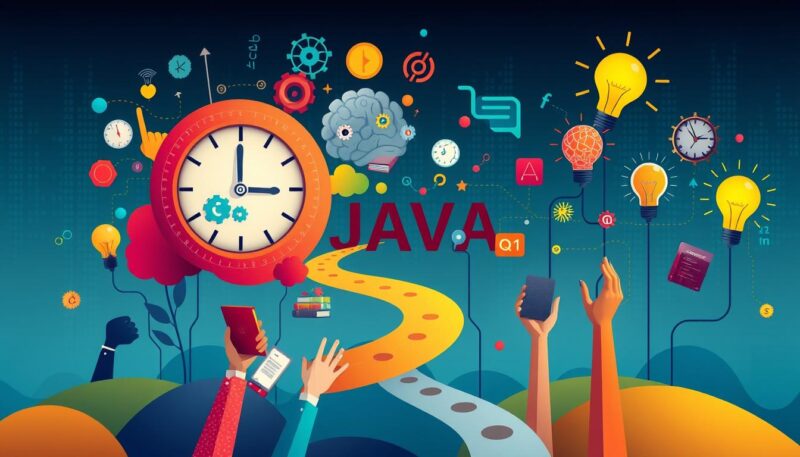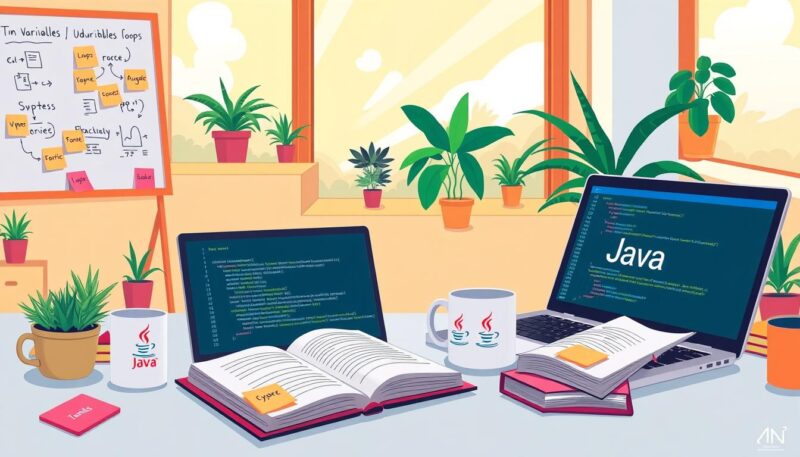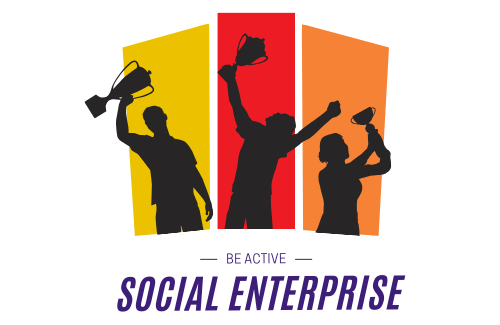Embarking on your coding journey can be an exciting and transformational experience. As a beginner programmer, you’ll find that learning programming languages like Java can open up a world of possibilities in software development. Java, a versatile and widely-used programming language, offers numerous opportunities for those willing to put in the effort and dedication.
As a new programmer, you may wonder how long it takes to learn Java. While the answer varies depending on several factors, it’s essential to set realistic expectations and understand that mastering Java is a gradual process. Many successful programmers have shared their stories of perseverance and dedication, proving that with the right approach and resources, you can achieve your goals.
Java’s applications span across various industries, from web development to mobile app creation, making it a valuable skill to acquire. This introduction aims to inspire you to take your first steps in learning Java and to outline what you can expect along the way.
Key Takeaways
- Starting your coding journey with Java can lead to a rewarding career in software development.
- Learning programming languages requires time and dedication.
- Setting realistic expectations is crucial for new programmers.
- Java skills are applicable in multiple sectors, enhancing your employability.
- Success stories from other programmers can provide motivation and guidance.
The Java Learning Curve: What You Need to Know
Embarking on the journey to master Java means understanding the distinct phases of the Java learning curve. From grasping fundamental syntax and basic programming constructs to delving into complex libraries and frameworks, each stage brings unique challenges and growth opportunities. Here, we will explore these stages and provide insights to help you navigate through them effectively.
Understanding the Basics
Your initial steps in Java involve familiarizing yourself with vital concepts such as variables, data types, control structures, and basic syntax. Java tutorials are immensely helpful during this phase, providing structured guidance and interactive examples. Platforms like Codecademy, Udemy, and Coursera offer comprehensive Java tutorials to help you build a strong foundation.
Intermediate Concepts and Advanced Topics
Once you’ve established a solid foundation, the next phase of the Java learning curve involves exploring intermediate and advanced concepts. This includes object-oriented programming (OOP), exception handling, multithreading, and understanding Java’s rich API. Strengthening your programming skills during this phase is crucial, as these topics form the backbone of most robust Java applications.
Additional resources, such as official Java documentation and specialized courses, can deepen your understanding and proficiency in these areas. Practice is key—implementing small projects or contributing to open-source projects can accelerate your learning.
Common Challenges and How to Overcome Them
As with any learning journey, encountering obstacles is inevitable. One common challenge in learning Java is mastering object-oriented programming principles. Concepts like inheritance, polymorphism, and encapsulation can be difficult to grasp initially. Utilizing collaborative learning forums, such as Stack Overflow or GitHub discussions, can provide valuable insights and support.
Another hurdle is managing memory effectively, especially when dealing with extensive data and complex applications. Engaging in frequent code review sessions, leveraging profiling tools, and consulting Java tutorials on best practices can help you overcome these hurdles. Consistent practice and seeking feedback are essential to refining your programming skills.
Factors That Influence How Long It Takes to Learn Java
Understanding the elements that affect your programming timeline is crucial. The time it takes to learn Java can vary greatly depending on multiple factors, from your prior experience to the commitment you put into learning. Let’s explore each of these aspects in detail.
Your Previous Programming Experience
If you have prior experience in software development, you will likely grasp Java concepts more quickly. Knowledge of other programming languages can ease the learning curve, making the coding expectations more manageable. Java shares similarities with languages like C++ and Python, enabling experienced coders to leverage their existing skills.
The Time You Dedicate to Learning
The amount of time you allocate to learning Java significantly impacts how quickly you can progress. A structured daily routine, including practice and theory, ensures consistent progression along your programming timeline. Aim to integrate coding into your daily schedule, allowing you to steadily build and reinforce new skills.
The Quality of Your Learning Resources
The efficacy of your learning journey is also influenced by the quality of resources you choose. Utilizing comprehensive and reputable materials, such as the official Oracle Java documentation, structured tutorials, and well-reviewed courses, can greatly enhance your learning efficiency. High-quality resources not only cover optimal coding expectations but also provide practical examples and solutions.

Below is a comparative table to illustrate how these factors can influence your learning journey:
| Factor | Impact on Learning Time | Examples |
|---|---|---|
| Previous Programming Experience | Reduces Learning Curve | Experience with C++, Python |
| Time Dedicated to Learning | Ensures Consistent Progress | Daily coding practice, weekly goals |
| Quality of Learning Resources | Enhances Efficiency | Oracle Java documentation, reputable courses |
Setting Realistic Expectations as a New Programmer
Embarking on your programming journey can be exciting yet daunting. As a new programmer, it’s crucial to set realistic expectations to keep your motivation high and ensure steady programming progress. Understanding that the path to becoming proficient in Java is a marathon, not a sprint, will help you manage your expectations effectively.
“Success is the sum of small efforts, repeated day in and day out.” — Robert Collier
While the excitement of building your first application is palpable, celebrating small coding milestones along the way is equally important. By doing so, you’ll recognize the incremental progress you’re making, which fuels further learning. It’s not about how fast you get there but how solidly you build your foundation.
Patience and resilience are key attributes you need to cultivate as you delve deeper into programming. Challenges and roadblocks are inevitable, but viewing these obstacles as learning opportunities can foster a growth mindset. Engaging with the programming community can offer insights and encouragement, reinforcing that setbacks are part of the journey.
Programming educators often emphasize the value of setting achievable benchmarks. Breaking down your learning process into manageable chunks and rewarding yourself after achieving each milestone makes a significant difference. Here’s a quick guide to setting incremental coding milestones:
- Understand and write basic Java syntax (e.g., loops, conditionals).
- Build simple, functional programs (e.g., calculator, to-do list).
- Practice object-oriented programming concepts.
- Debug and test your code effectively.
By systematically measuring your programming progress, you gain confidence in your abilities and are better prepared to tackle complex projects. Celebrating these small victories along the way ensures a more fulfilling journey as you advance in your coding career.
Remember, each small step taken methodically will lead you closer to your bigger programming goals. By fostering a strategic approach to learning and setting realistic expectations, you’re setting yourself up for long-term success.
How to Structure Your Java Learning Timeline
Embarking on a coding journey can be exhilarating and overwhelming. Structuring your Java learning timeline with clear goals and milestones can make the process manageable and productive. By setting daily and weekly objectives, you can harness your tech skills effectively.
Daily and Weekly Goals
Consistency is the key to mastering Java. Establish daily and weekly goals to build a solid foundation. Devote at least an hour each day to learning new concepts and practicing coding exercises. On a weekly basis, aim to complete a small project, such as a console application, that incorporates the week’s lessons.
- Daily Goals: Review coding concepts, practice exercises on platforms like LeetCode, and write small programs.
- Weekly Goals: Complete a mini-project, participate in a coding challenge, or contribute to an open-source project.
Milestones to Measure Your Progress
Setting milestones helps in tracking and celebrating progress. These benchmarks should reflect significant achievements in your coding journey, such as understanding core Java syntax, mastering object-oriented programming, or completing a complex project.
| Milestone | Description |
|---|---|
| Basic Syntax | Understand and write basic Java syntax and semantics. |
| Object-Oriented Programming | Create and utilize classes and objects effectively in Java. |
| First Project | Complete your first end-to-end Java application. |
| Coding Challenges | Successfully solve intermediate-level problems on coding platforms. |
Balancing Theory and Practice
The balance between theory and practice is crucial to your tech skills development. While theoretical knowledge is necessary, hands-on practice solidifies your understanding and builds practical proficiency.
- Theory Sessions: Dedicate specific days for deep-diving into Java concepts and reading related literature.
- Practical Sessions: Spend the remaining days coding, debugging, and testing small projects and exercises.
Remember, your coding journey is unique. Adapt your learning schedule to fit your needs and stay committed to your goals.
Essential Java Programming Skills for Beginners
Embarking on your journey as a Java developer involves mastering a core set of programming skills and understanding the foundational principles of Java. These essential skills will serve as the bedrock of your Java expertise and allow you to build more complex applications over time.

Core Syntax and Semantics
The foundation of Java programming skills lies in grasping the core syntax and semantics of the language. This includes understanding data types, control flow structures like loops and conditionals, and basic input/output operations. Familiarity with Java’s syntax will help you write clean and efficient code, preparing you for more advanced topics.
Object-Oriented Programming
Object-Oriented Programming (OOP) is a fundamental aspect of Java expertise. You need to learn about classes, objects, inheritance, polymorphism, and encapsulation. These principles enable you to create modular and reusable code, making your programs more maintainable and scalable. Mastery of OOP is crucial for developing sophisticated Java applications.
Debugging and Testing
Developing strong debugging and testing skills is essential for long-term success in Java programming. Understanding how to identify and fix errors using debugging tools will save you countless hours of troubleshooting. Additionally, writing effective test cases ensures your code runs as expected and helps maintain code quality. Embracing these practices early in your learning journey will solidify your programming skills and elevate your Java expertise.
The Importance of Hands-On Practice and Projects
Engaging in hands-on practice and working on real-world projects are instrumental in mastering Java. Through direct application of your skills, you can transform theoretical knowledge into practical competence, boosting your confidence and proficiency.
Building Simple Java Applications
Starting with simple Java projects allows you to build a solid foundation. Whether it’s a basic calculator, a to-do list app, or a simple game, these projects act as a springboard for deeper learning. Tackling real-life Java projects helps in grasping core concepts and showcases how these elements converge to create functional programs.
Participating in Coding Challenges
Coding challenges provide a competitive edge that fosters rapid growth. Platforms like Codewars, LeetCode, and HackerRank offer diverse challenges that test and expand your coding abilities. By routinely engaging in these coding challenges, you not only strengthen problem-solving skills but also enhance your proficiency in Java under time constraints, a crucial aspect of real-world programming.
Collaborating on Open Source Projects
Joining open source initiatives is a powerful way to apply hands-on practice while contributing to the community. Open source projects, like those on GitHub, enable you to collaborate with seasoned developers, gain critical feedback, and learn industry standards. This collaborative environment is invaluable, offering exposure to diverse coding styles and advanced Java projects, significantly accelerating your growth trajectory.
How Long Does It Take to Learn Java?
Taking on the challenge to learn Java can be an exhilarating journey. Your learning period can vary greatly based on a few essential factors:
- Your previous programming experience
- The amount of time you dedicate to studying
- The quality of the learning resources at your disposal
For those stepping in with a background in another programming language, the Java learning curve might appear less daunting. Diving into the basics like Java syntax, variables, and data types could be a matter of weeks. On the other hand, complete novices might need a few months to comfortably grasp these fundamental concepts.
Intermediate topics such as object-oriented programming, exception handling, and threads demand consistent practice and a deeper understanding. Expect to spend anywhere from three to six months on mastering these areas. To learn Java thoroughly up to an intermediate level, students typically set milestones and celebrate small victories along the way.
When advancing to more complex domains like Java frameworks, building web applications, or handling database connectivity, the journey becomes more personalized. Some may find that their professional or academic background accelerates their progress, while others might need additional time to adapt and flourish.
| Experience Level | Estimated Time to Learn | Key Focus Areas |
|---|---|---|
| Beginner | 3-6 months | Basic Syntax, Variables, Data Types |
| Intermediate | 6-12 months | OOP, Exception Handling, Threads |
| Advanced | 12 months + | Frameworks, Web Applications, Database Connectivity |
The dedication you bring to your learning journey, the resources you engage with, and your adaptability to new challenges significantly shape how rapidly you can learn Java. Remember, while it’s crucial to stay committed, flexibility and resourcefulness are your greatest allies in navigating the Java learning curve.
Conclusion
The journey of learning Java is a significant milestone in any budding programmer’s career. As you’ve explored in this article, the programming timeline can vary greatly depending on numerous factors such as your previous experience, time commitment, and the quality of your learning resources. By understanding the basics, tackling intermediate and advanced topics, and navigating common challenges, you build a strong foundation for your coding journey.
Setting realistic expectations and structuring your learning timeline with clear goals and milestones helps keep you motivated and on track. Balancing theory with hands-on practice, from building simple Java applications to collaborating on open-source projects, enriches your learning experience. These efforts are essential in mastering core programming skills and advancing your understanding of Java.
Remember, every step you take in your coding journey brings you closer to becoming a proficient Java programmer. The path may be demanding, but it’s also incredibly rewarding, full of opportunities for personal and professional growth. Embrace the vast community of Java developers and utilize the abundant resources available to support your journey. Your persistence and dedication will undoubtedly pay off as you continue to explore and innovate in the world of Java programming.

